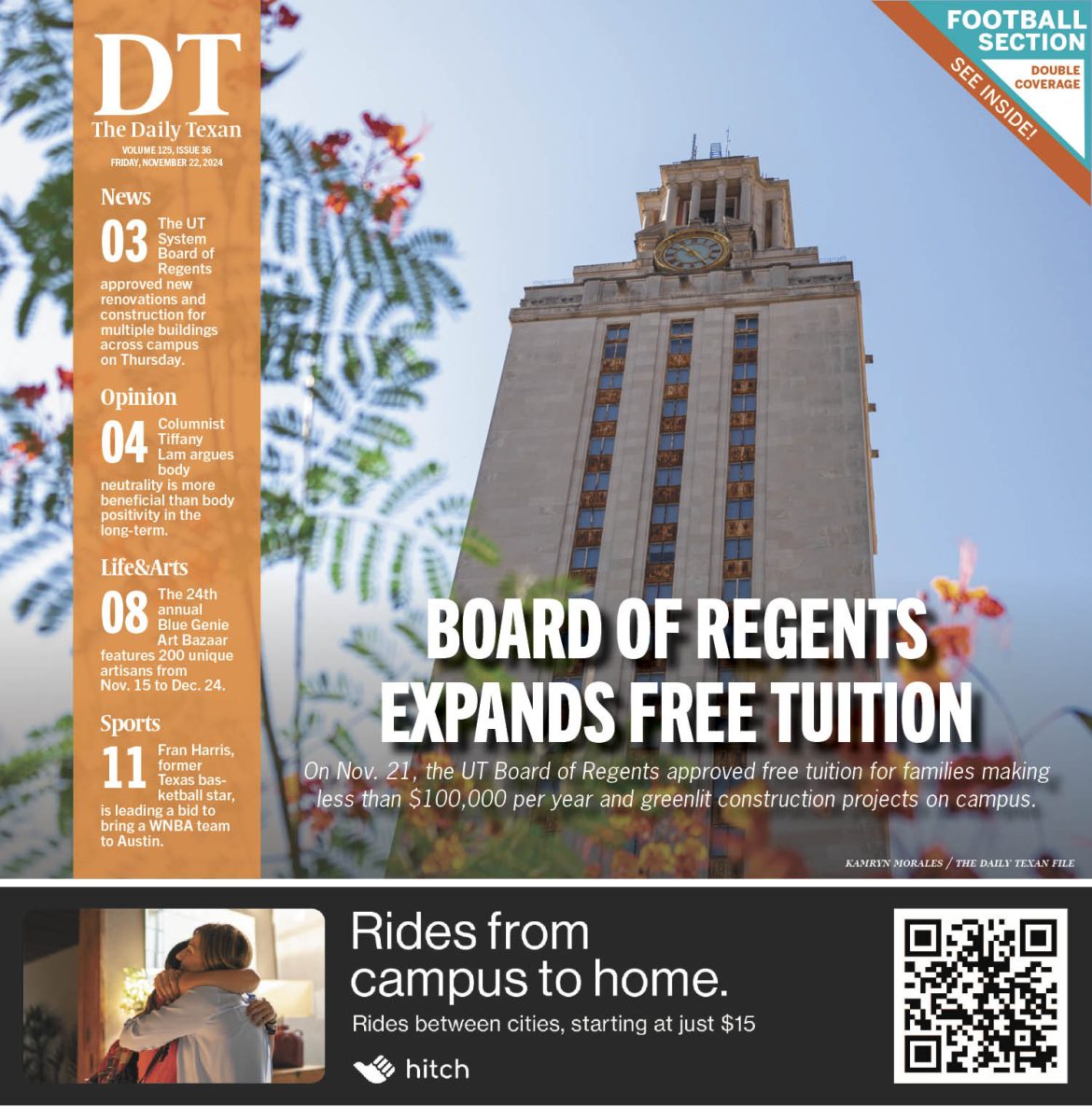The Sanger Learning Center should tutor more courses
August 13, 2022
Editor’s Note: This article first appeared as part of the August 9 flipbook.
For students seeking tutoring to better understand course material, the Sanger Learning Center is a helpful resource they can utilize. However, while some students can receive the assistance they need from the SLC, others might not be able to — because it doesn’t offer tutoring for courses they need help with.
To address this issue, the SLC should offer tutoring for other popular courses, such as finance and neuroscience courses so that they’re able to help more students.
“It’s an unfair advantage that people have so much tutoring and resources available provided by UT for specific courses, and for other courses, there’s very little available, which has also been my personal experience,” neuroscience sophomore Nicolas Sanchez said. “Coming from the (Texas Interdisciplinary Plan) program and having so much within discussion-based learning and the (collaborative study sessions), as well as the Sanger tutoring for my lower level courses, but coming into this next year, I don’t have those tools for any of the courses that I’m going to be taking on.”
When students do not have tools to assist with the courses they are taking, they may struggle academically. This can hurt student learning and potentially disrupt their degree plans.
Although students can go to office hours or attend discussion sections, these supplemental learning options usually assist several students at the same time. One-on-one tutoring may be more helpful to students, as it can be easier for them to get their individual needs met.
Students are able to notify the SLC if they need help with courses not listed as officially tutored, and the SLC will ask their tutors if anyone can assist. Although this may help sometimes, there’s no guarantee that they’ll find a tutor.
SLC program administrator Carissa Ábrego said the Center chooses officially tutored courses based on student enrollment and historical student demand for courses.
“It just depends on if we have a tutor who’s able to do it,” Ábrego said. “It can be the funding, but it’s also just which students are applying and what their course expertise is.”
The SLC may have more than enough tutors suited to assist with certain popular courses, such as chemistry, but it lacks tutors for other important courses. The Center should encourage greater student participation by reaching out to professors whose courses are not tutored at the SLC and ask them to encourage their past students to apply as tutors.
Students should be able to receive tutoring if they need it, as it is often instrumental to their learning. The SLC can help make this happen by expanding the diversity of tutored courses.
Kamal is an international relations and global studies and economics junior from Irving, Texas.





